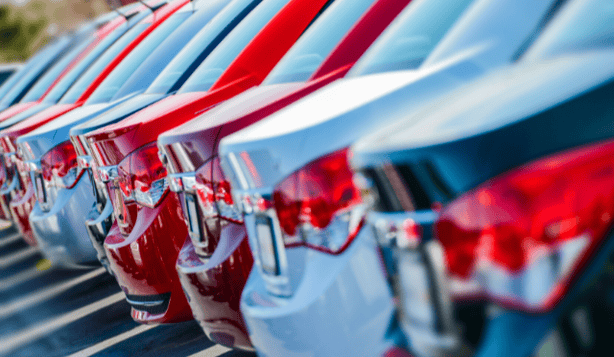
An auto loan without interest sounds too good to be true. So, what's the catch? Here's what you should understand about zero-percent financing offers before committing.
What is 0% financing?
When you see a dealership advertising zero-percent financing, it means the car dealer is offering to lend you money for a new car without charging any interest fees over the life of the loan.
At first glance it may seem like a charitable act, because with traditional loans, lenders make the money back through repayments, plus some as a result of interest fees made over the life of the loan.
A 0% car loan, though, offers no reward to the dealership. But before you go applauding them for their selflessness, know this — the automaker earns the same amount it would earn on any car deal, but now the money is earned over a longer span. They make money on the car itself, not through financing. Dealers advertise 0% interest to sell slower-selling models, help clear out stale inventory, and to spark sales when the public isn't buying (like during a pandemic).
Can anyone qualify for zero-percent financing?
Dealerships love to offer 0% financing as a way to get customers in the door, but it can actually be quite difficult to qualify for one of these loans. They are typically only offered to buyers who have excellent credit. The only people who get the deal are the ones the dealership thinks will pay on time or maybe even early. By being choosy about who gets the deal, carmakers can ensure their temporary discount is low risk and profitable.
When is 0% financing a good idea?
If you qualify for a 0% financing loan, you can easily save a ton of cash in interest payments over the life of the loan.
Make sure you crunch the numbers to be sure you can easily afford the monthly payments on a no-interest loan. If the numbers add up, a 0% financing loan can be a great way to save money on a new set of wheels.
When is 0% financing a bad idea?
If you can't afford the loan to begin with, then 0% financing won't help you at all. 0% won't make the car any cheaper, in fact it may do the opposite. Since the dealership only profits from the actual sale, they will rarely agree to bargain down the price and often waive other incentives, like cashback rebates. Stripping away rebates helps them make their money back. Because of this, a no-interest loan could cost more than the savings you’d get negotiating on price. Since most 0% offers disqualify you from rebates, a car you were looking at before the offer could have its price tag increased by $1,000 or more without the incentives built-in.
Another point to consider before committing to a 0% financing loan is the term of the loan. Some of these loans feature longer terms than traditional auto loans, as much as six years. Six years is a long time to be paying for a car. Your needs could change before then. On the other side of the coin, some 0% financing loans are expected to be paid off within four years — which would bump your monthly payment amount way up.
Lastly, if your current car is paid off and runs fine, yet you still feel tempted to take advantage of the 0% financing offer while it lasts — do some soul-searching and ask yourself if you're really ready to commit to that kind of debt again. Not having a monthly car payment gives you more room to save. Are you willing to sacrifice or delay other financial goals for a new car you don't really need?
Let's do the math.
Let’s take a look at the purchase of a single car and run it through both kinds of loans.
A car is selling for $20,000 with a 0% financing offer that must be paid off in four years. Monthly payments on this loan will amount to $416.
Alternatively, an auto loan offered by a credit union at the average national rate would give the loan an annual percentage rate (APR) of 3.45%. Over five years, that would amount to a monthly payment of $363.
With a traditional loan, you can also take advantage of manufacturer rebates. Meaning that if this car has a $2,500 cash-back rebate, its price would drop to $17,500. In total, a traditional auto loan with an APR of 3.45% would boil down to a monthly payment of $318. The total amount paid on the car would also be less than the amount paid through the no-interest loan, at $19,080.
Run your own numbers through our auto loan calculator to see what your actual monthly payment would be before taking on a loan. It’s the best way to determine if you can afford the vehicle without overextending your budget.
Learn how Louisiana FCU can make your car-buying experience a breeze. Request a call from one of our experts, or do the research yourself.
Like this article? Subscribe to our blog and receive weekly articles that will help guide you toward the best financial decisions for your unique situation.




